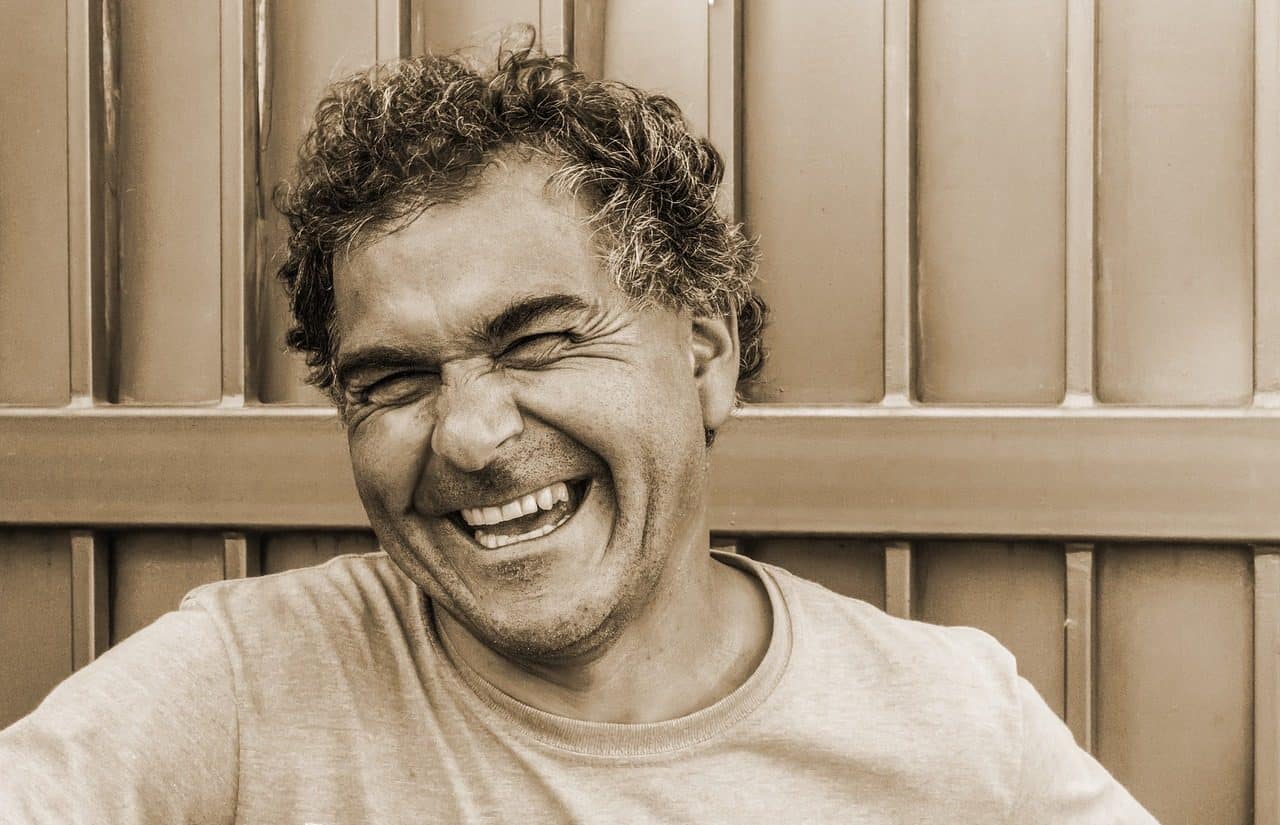
Planning meals is a fundamental healthy habit.
Healthy habits are those practices and behaviors that a person incorporates into their daily life to maintain or improve their emotional and physical health, as well as their mental well-being.
Examples of healthy habits
Meal planning
It consists of organizing in advance what foods and dishes will be consumed during the week. This habit helps ensure a balanced and varied diet , facilitates portion control and avoids the consumption of unhealthy foods due to a lack of available options. Eventually it is possible to incorporate healthy snacks and other foods as compensation for the commitment, although it is recommended to prioritize home cooking.
Intuitive eating
It is an approach that promotes listening to and respecting the body's natural signals related to hunger and satiety. Instead of following restrictive diets, it is about eating mindfully , when you are hungry, and stopping when you are satisfied, paying attention to the quality of the food and enjoying the process of eating. To achieve this, it is also necessary to eat without distractions.
Regular physical activity
Walk, run, swim, play sports or do stretching exercises, strength training or some cardiovascular exercise to maintain physical fitness and strengthen circulation.
Restful sleep
Respect the necessary rest hours. In the evenings, 7-9 hours are generally recommended to allow the body and mind to recover and function properly.
Adequate hydration
Drink enough drinking water throughout the day to maintain good hydration and support bodily functions.
personal hygiene
Wash your hands, brush your teeth ( dental hygiene ), and bathe regularly to prevent infections and illnesses.
Stress prevention
Meditation, yoga , breathing techniques or any activity that promotes relaxation and emotional well-being.
Avoid harmful substances
Do not smoke (or quit), practice alcohol moderation, and avoid illegal drug use or prescription medication abuse.
Periodic medical checkups
And follow the recommendations of health professionals for early detection and prevention of diseases.
digital detox
Take a break from using electronic devices and social media. In an increasingly connected world, this habit becomes essential to maintain mental and emotional balance. Digital detox involves setting limits on screen time, avoiding device use before bed, and reserving times of the day for technology-free activities.
Incorporating these habits into your daily routine can contribute to a longer, healthier, and happier life.

We must keep our body hydrated at all times.
Balanced nutrition
Balanced nutrition is a fundamental healthy habit that involves consuming a variety of foods in the right proportions to maintain well-being and optimal functioning of the body . This approach includes regular fruit and vegetable intake, which are essential for providing vitamins, minerals and dietary fiber, as well as maintaining good weight control and a healthy body mass index (BMI).
Incorporating healthy fats, such as those found in avocado, olive oil, and nuts, is important for heart and brain health . Additionally, reducing added sugars can prevent chronic diseases such as diabetes and obesity. This should go hand in hand with minimizing processed foods . Reading nutritional labels is a crucial practice to understand the content of food and make informed decisions about what we consume.
Eating controlled portions is also key to balanced nutrition, as it helps avoid excess calories and maintain a healthy weight. In some cases, nutritional supplements may be necessary to cover possible deficiencies, although it is always advisable to obtain nutrients mainly from food. Adopting these habits contributes significantly to overall health and long-term well-being.
Outdoor time
Spending time outdoors is an essential healthy habit that offers numerous benefits for physical and mental well-being . Exposure to sunlight helps the body produce vitamin D, vital for bone health and the immune system. However, it is important to practice skin care using sun protection to prevent damage caused by UV rays.
Engaging in outdoor activities, such as hiking and team sports, not only promotes physical activity , but also improves mood and reduces stress . This encourages a connection with nature, providing a feeling of tranquility and rejuvenation. Incorporating time outdoors into your daily routine can significantly contribute to a healthy and balanced lifestyle.
Healthy social relationships
Maintaining healthy social relationships is a crucial aspect of overall well-being, as they provide a sense of community and support, helping people face challenges and celebrate successes. Spending time with family and friends strengthens emotional ties and fosters a network that is essential for emotional health.
Engaging in shared recreational activities, such as sports, games, or outings, not only enhances personal connections but also provides opportunities to relax and enjoy yourself . A proper work-life balance is essential to cultivating these relationships; Spending quality time on social interactions outside of the work environment reduces stress and improves life satisfaction.
Healthy social relationships also involve open and honest communication , mutual respect, and the ability to resolve conflicts constructively. Encouraging these habits can improve mental and emotional health, contributing to a fuller and more balanced life .

The power of laughter for emotional health is incalculable.
Therapies
Laughter therapy
It is a psychotherapeutic technique that uses laughter to improve the emotional and physical state of people.
Benefits:
- stress reduction : laughter reduces levels of cortisol and adrenaline, hormones associated with stress;
- improvement of the immune system : increases the production of antibodies and immune cells;
- emotional well-being : promotes the release of endorphins, improving mood;
- Cardiovascular health : improves blood circulation and reduces blood pressure.
Hydrotherapy
It is the use of water in different forms and temperatures for therapeutic purposes.
Benefits:
- pain and inflammation relief : hot water relaxes muscles and joints;
- improved circulation : temperature contrasts can stimulate blood flow;
- relaxation : promotes muscle and mental relaxation ;
- physical rehabilitation : facilitates rehabilitation exercises without the burden of gravity.
Animal therapy
It involves interacting with animals as part of a therapeutic process or participating in volunteer programs with animals.
Benefits:
- reduction of stress and anxiety : the company of animals can have a calming effect;
- mood improvement : stimulates the production of serotonin and dopamine ;
- social skills development : encourages communication and empathy, especially in people with autism;
- emotional support : provides companionship and reduces feelings of loneliness.
Art-therapy
Use the creative process to help people express their emotions and improve their mental well-being.
Benefits:
- emotional expression : facilitates the expression of feelings that are difficult to verbalize;
- stress reduction – the creative process can be relaxing and meditative;
- improved self-esteem : the achievement of creating art can increase self-confidence;
- trauma processing – helps explore and heal traumatic experiences.
Aromatherapy
It is the use of essential oils from plants for therapeutic purposes.
Benefits:
- Relaxation and stress reduction : Oils like lavender have calming effects;
- sleep improvement : some oils can help improve sleep quality;
- Pain relief : Oils like peppermint can relieve headaches and muscle aches;
- Mood Enhancement – Citrus aromas can energize and elevate mood.
Expert word
Saúl Sánchez is a renowned Spanish nutritionist. Graduated in Human Nutrition and Dietetics at the University of Santiago de Compostela ( USC ), he has a Master's Degree in Genetic, Environmental and Nutritional Conditions of Development and Growth ( USC ) and completed the University Expert Course in Sports Nutrition at the International University from La Rioja ( UNIR ). For three seasons, Sánchez was a first-team nutritionist for Real Club Deportivo de La Coruña .
Taking advantage of his extensive knowledge, we asked him what is the key to adopting healthy habits and sustaining them over time and how he accompanies his patients in this process:
The key is to look for short, medium and long-term objectives to, in this way, always have some stimulus that allows improving adherence. Of course, discipline is decisive, which of course has an educational component. Also try to propose flexible routines that adapt to the needs of each person. In my case, as a professional, I try to provide very individualized and close advice with support through WhatsApp so that the patient feels cared for at all times, encouraging them to share feedback every few days with the aim of making adjustments or corrections if necessary. that something does not go as expected.
Saul Sanchez
